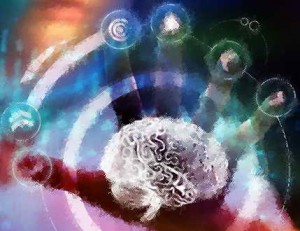 Active inclusion of civil experts in production of scientific knowledge generates the phenomenon which Alan Irwin defined as civil science. Various forms of civil science are wide spread today.
Active inclusion of civil experts in production of scientific knowledge generates the phenomenon which Alan Irwin defined as civil science. Various forms of civil science are wide spread today.
The civil science is a space of dialogue between scientists and citizens, involvement in scientific research of nonprofessional. Biohacking represents a striking example of civil participation in production of scientific knowledge.
In 2008 Jason Boub and Mackenzie Cowell founded in Boston the DYIbio organization (Do-It-Yourself Biology that can be translated as the amateur, handicraft or improvised, amateur biology) – the platform of free exchange for amateur biologists. In 2016 it turned into a global forum of biohackers. Within DYIbio the ethical code of the movement including the principles of openness, transparency, safety and responsibility for the actions was drafted. In a broad sense it is realization of scientific research outside traditional scientific institutes.
This movement makes social changes to process of knowledge production , defining a possibility of diffusion of scientific and social discourses, scientific and civil examination. The possibility of civil science is connected first of all with development of digital technologies which provided its inclusion in institutional fabric social the practician and provided possible access for everyone to production of scientific knowledge.
Biohacking isn’t included in institutional structure of science though has signs of the organized movement. Biohackers create norms and standards of the activity, without submitting to any external control. They carry out examination of knowledge on experience in process of the solution of a specific problem. That is carry out examination of scientific problems at the social and technical levels.
The lack of a clear boundary between science and business, private and public, craft and creativity, invention and a product complicates biohacking definition as strictly scientific activity. In this regard ethical principles of regulation of biohacking in the conditions of uncertainty of institutional accessory can not develop scientific knowledge, and generate its hybrid forms. In these conditions there is clear a paradox which is noted by linguists.
Language practicians show growth of number of carriers of special information and increase in streams of transfer of expert knowledge at simultaneous decrease “the level of an expert knowledge of the people involved from the different parties in exchange of special knowledge”.
The relevance of conclusions and novelty of technical solutions of civil science throw down a challenge to science academic. But if studying of this world as opening of his new parties, communications and the relations is the cornerstone of the academic scientific activity, then production acts as a basis of biohacking, designing of knowledge of objects, analogs which aren’t present in the nature. In this regard ethical principles of biohacking contribute to the development of knowledge of possible, alternative reality which takes root into objective reality.
Therefore biohacking ethics as ethics of knowledge production of the possible world demand the correlation with ethics of knowledge discovery of the objective world.
Created by Grishechkina Natalia, Tikhonova Sofia.
